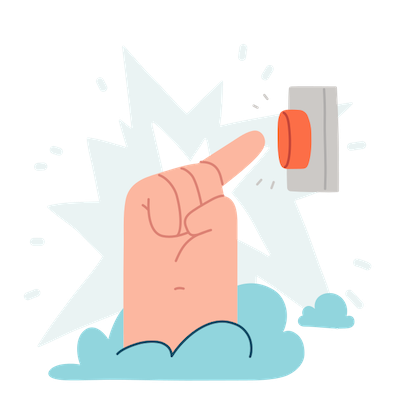Hello
How are you doing today?
Something to Consider
When I was younger, I was never the one to give relationship advice. In fact, even hearing others trying (to give advice to one another, re: romantic relationships) made my stomach squirm and head swim. I didn’t want to think about it; I didn’t know what to think about it. I knew that I didn’t have the “communication skills” to make sense of the advice nor succeed on my own. It was veritably uncomfortable!
No surprise then that when it comes to romantic love, I viewed myself like a blind man stumbling in the dark without a cane, destined to fail.
It’s funny looking back on it now, realizing how silly my view of things was, knowing that many if not most people have suffered a few failings / mishaps / screw ups / missteps / losses / misjudgments / upsets / (and so on) when it comes to love.
For some reason, back then, I felt more comfortable in “friendship territory” — which nowadays I realize is equally complicated. Committing to love others — no matter whether we’re talking about a family member, romantic partner, or friend — takes effort and an open mind.
Let’s see if you agree: I’m thinking, the mistakes I make (then and now) need not sway me from trying (differently) another day. Love is showing up. Love is not about perfection.
We pay attention. We avoid assuming we have them figured out already. We notice instead how they are really changing (and try not to feel their changes as a threat). We give space while still remaining interested. Love is neither possessing nor neglecting. Love is attending to the changes.
Love means trying to communicate, investing time to learn, being kind to ourselves as we learn, caring to find those who care, who want to understand what we’re trying to say. Love is an ongoing process. We never quite arrive, and we do not quit either.
To love is to continue… with a wisened heart and a learning mind.
Something to Read
5 Tips for Building an Equitable Early-Stage Company (Startups & Society Initiative)
It’s a common-enough cliché in the tech startup world, that the best thing to do is to fail fast, fail early. The idea is to encourage an ‘iterative’ action-based approach. Rather than over-think stuff, try things and see what happens next. If you fail, then find a way to improve, and try again.
That said, sometimes the philosophy is used to justify making poor decisions in a company’s early stages. For instance, if we start a company and think that we should only have investors and advisors who look and think exactly as we do, then we might overlook key opportunities later.
Another example: If we say we care about creating an inclusive, caring team as a startup organization, then it’s important to develop thoughtful frameworks for hiring, team-building, career growth, salary equity etc before your team becomes 100+ people. Without clear frameworks of accountability, the stated values become empty words. When your team has grown in size past a certain point, if you failed to invest time sooner on this important issue, the problem will have likely ballooned into a very serious one indeed.
For those who see the societal failures of generations past, and recognize the value in learning from others’ mistakes, without repeating them ourselves, there are opportunities galore! The co-founders of early-stage startup Topknot have shared 5 tips on how they made decisions to build an equitable company from the beginning.
I love it.
Something to Hear
If you’ve been reading The Bridge a while, you might have noticed that I really like Kendrick Lamar’s music. & with all the awards he’s received and number of times his songs have been streamed, I’m clearly not the only one.
That said, if you’re new to his music, it’s worth noting he grew up working class in a place that people’d say is ‘unsafe’ and yet he made it famous: Compton CA. He talks of violence and makes it poetic. He wins a Pulitzer and comes out 5 years later with the most authentic, vulnerable album yet. His open heart, making it real, helping our hearts heal because unstated secrets and taboos are walls disconnecting us from our emotions, but Kendrick Lamar says:
As I get a little older, I realize life is perspective
And my perspective may differ from yoursI come from a generation of pain, … /
In the land where hurt people hurt more people /
Celebrate new life when it come back around
The purpose is in the lessons we learnin' now
Sacrifice personal gain over everything
Just to see the next generation better than oursAnd to my neighborhood, let the good prevail
Make sure them babies and them leaders outta jail
Look for salvation when troubles get real
Y'all had to see it, that's the only way to feel'Cause you can't help the world until you help yourself
And I can't blame the …
Something to Try
Try — next time you feel like it’s the place you were born, it’s the people who raised you, it’s the culture around you, it’s the ones who ignored you — try shifting the blame, try putting it away, wait ‘til it transforms into a new ownership, an ownership of our pain and our agency to make a change. We can help one another help ourselves pro bono, free of charge.
Let’s try owning it,
JPC 😎





